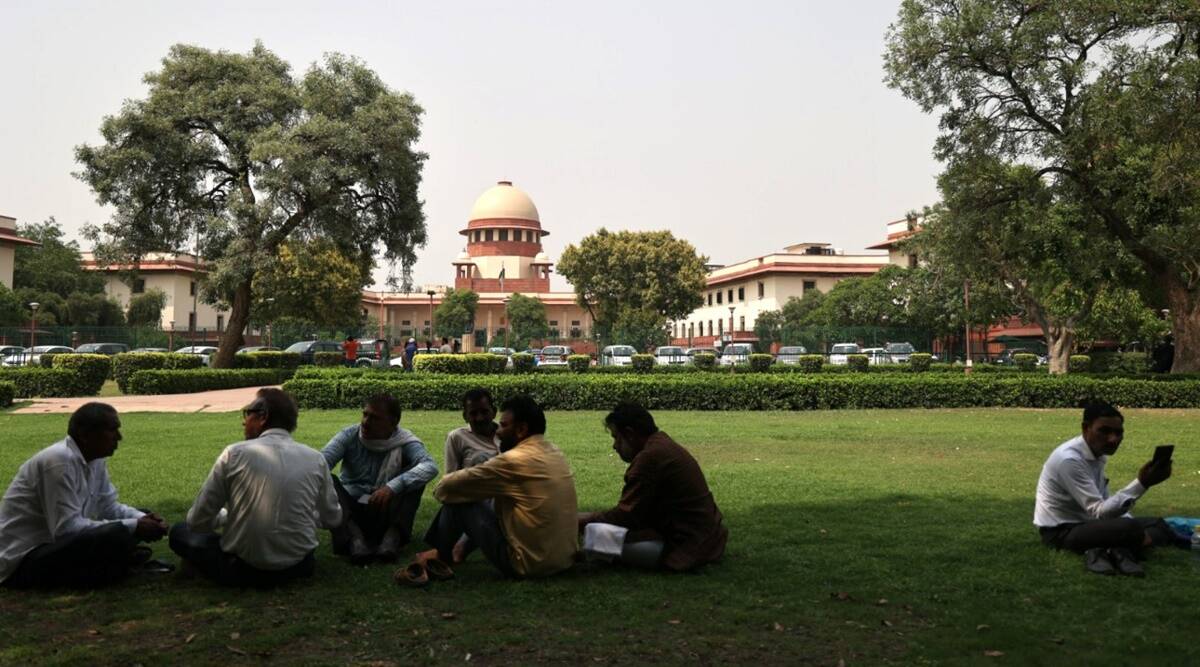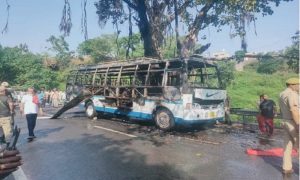
The Supreme Court raps counsel for saying Kashmir became part of India after scrapping of Article 370
The Supreme Court on Friday cautioned a counsel who in the course of his arguments said Kashmir became a part of the country after abrogation of Articles 370 and 35A of the Constitution in August 2019 to be careful about his language.
“No. It has remained a part of the country for long time. These are certain special provisions. Careful in what language you use,” Justice S K Kaul, presiding a two-judge bench, told Ravi Shankar Jandhyala, while hearing a plea that challenged the delimitation exercise, which recommended increasing the number of seats in J&K Assembly from 83 to 90.
The court was hearing a plea by two Srinagar residents — Haji Abdul Gani Khan and Mohammad Ayub Mattoo – against the delimitation exercise.
Perusing the plea, the bench also comprising Justice M M Sundresh told Jandhyala that it appeared to be jumbled and that the court found it difficult to understand what exactly the prayer was.
Jandhyala responded that on the issue of abrogation, the stand is that “because it is abrogated, therefore, on August 5, 2019, Kashmir has become a part of this country…”. Before he could complete, Justice Kaul intervened and reminded him about Kashmir’s position.
The counsel quickly corrected himself and said, “370 abrogated, thereafter all provisions of Constitution have been applied to J&K”.
As the court fixed the next date of hearing to August 30, the senior counsel expressed the apprehension that the report might be tabled in Parliament after which it will become equivalent to a civil court decree. “Then it will be a difficulty,” he said.
But the bench asked, “We can restrain them from tabling it in Parliament?”
Justice Kaul also asked the counsel why the petitioner had not challenged it when the delimitation commission was first constituted. “If you are so anxious, why did you sleep for two years to challenge the earlier notification of 2020?”
Jandhyala contended that the delimitation exercise “is contrary to the scheme of the Constitution… the essence of these (constitutional) provisions is that the extent of such constituencies as delineated now shall remain frozen till the first Census to be taken after the year 2026. Therefore, alteration of boundaries in extant areas could not be done because of these provisions.”
He said the petition challenges the delimitation notification of March 6, 2020 and two subsequent notifications — of March 3, 2021 and another extending it for a further period of two months.
Countering the petitioner’s submissions, Solicitor General Tushar Mehta said, “There are two kinds of delimitation provided under the Constitution, Representation of the People Act, 1951 etc. One is geographical delimitation due to rise in number of people etc by delimitation commission. Thereafter, there is second concept of delimitation which is undertaken by Election Commission, delimitation in terms of reservation for the seats to be provided….How much reserved for whom?”
Mehta said the petitioner’s case is that this could not have been done once Article 170 says the next Census will take place only in 2026. “Here what had happened was, by amending the erstwhile Constitution of Jammu and Kashmir, the Constitution has frozen the Census of 1975,” he said.
The bench said there were multiple prayers in the petition and asked Mehta to put forth whatever he had to say in an affidavit.

